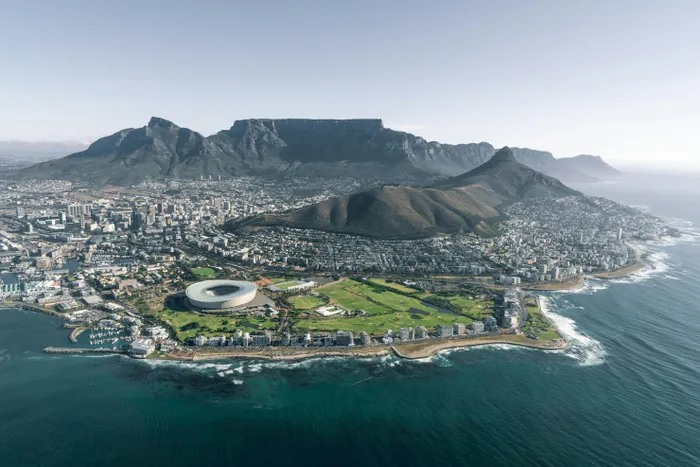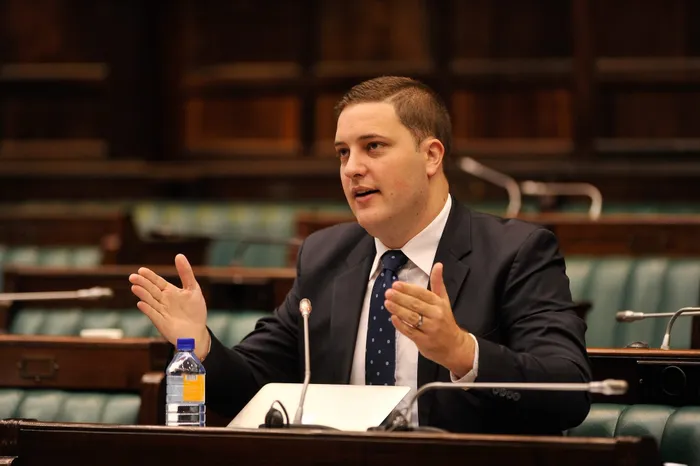Cape Town ratepayers push back against ‘unfair’ budget as City promises expanded relief measures

The City of Cape Town has been criticised over their budget plans
Image: Unsplash
As the City of Cape Town prepares to table its 2025/26 municipal budget, the Cape Town Central Ratepayers’ Association (CTCRA) has accused it of sidelining residential stakeholders and pressing ahead with what they call steep and disproportionate rates hikes—despite a petition signed by over 10,000 residents opposing the move.
CTCRA Chairperson Bas Zuidberg said the public participation process was undermined from the start. “We requested an extension of 14 days to allow for broader public input, which was denied. To date, we have had no direct engagement with the City—only through ward councillors and the press,” he said.
Zuidberg warned that many residents—particularly those with properties valued between R3 million and R7 million—face increases in the high double-digit percentages, depending on their utility usage. “What’s deeply frustrating is that the City made significant last-minute changes to the draft budget just three days before the deadline for comment, without any explanation or consultation. Ratepayers had no opportunity to respond to the full scope of these changes,” he said.
A major sticking point has been the introduction and structure of fixed service charges, especially the cleaning tariff. “The City has chosen a paternalistic approach: ‘we know what’s best for you’. But the reality is that 25% of properties are now paying for 60% of services. That is neither proportional nor fair,” said Zuidberg.
CTCRA argues that alternative revenue options, such as a modest overnight tourist tax, should be explored to offset the need for sharp increases in residential rates. “The City didn’t do its homework. It didn’t consider spreading investments over a longer term, or cutting fat in the system before turning to ratepayers for more money,” Zuidberg said.
The association warns that many long-time residents, including pensioners, are now being priced out of their homes. “People are being told they’re living above their means and should simply move. That’s not a ‘budget of hope’ for them,” said Zuidberg.
Civic activist Sandra Dickson, founder of Stop COCT, echoed the frustration. “The range of increases to our total municipal bills currently ranges from 5–24%. This is multiples of the current inflation rate,” she said. “The City persists with the four Fixed Charges (two new) without proportionally reducing the consumptive portions of the tariffs.”
“This link to property values to determine Fixed Charges is not a true reflection of the City's costs to provide the services. This budget is a disaster in the making as it is not balanced, it is out of proportion, not linked to inflation and purely designed to extort money from already struggling ratepayers.”
In response to the growing backlash, the City issued a statement outlining upcoming changes to the budget and public participation process.

Mayor of Cape Town, Geordin Hill-Lewis said balancing the national Budget should not come at the expense of municipal infrastructure grants or service delivery allocations.
Image: Henk Kruger / Independent Newspapers
“The City of Cape Town will next week table expanded rates relief measures and other changes to the budget. The public will have an opportunity to comment on changes to the City’s proposed budget for 2025/26 following the tabling at the City Council’s sitting on Wednesday, 28 May. Amendments resulting from the latest National Budget tabled this week will also be adopted before the start of the new financial year."
The public will be able to comment from 28 May to 13 June on proposed changes to the City’s Invested in Hope budget for 2025/26.
"Cape Town has tabled a South African-record R40bn infrastructure budget, the widest social relief net of any city, and next week we’ll table measures for even further relief on monthly bills, which are already the lowest of SA’s cities, despite Cape Town delivering better services and public value compared to other metros.
‘We’ve listened carefully to Capetonians and will propose expanded relief measures to further soften monthly bill increases in addition to the major electricity price relief for all households," the City said.
The City’s Mayoral Committee this week considered a report on public participation, including a petition calling for the raising of residential electricity prices instead of a City-wide cleaning charge. Our modelling shows this will negatively impact households and that it is better to pursue other relief measures.
The City said it is also not feasible to phase out critical and urgent infrastructure upgrades as the petition requests.
"Cape Town will not follow the path of decline seen in other cities, and there are no non-urgent major infrastructure projects in our capital budget.
‘We’ve thoroughly examined the budget to find innovative means to further soften the impact on monthly bills and will table these amendments at Council for public comment from 28 May – 13 June. Amendments to commercial tariff structures will also be tabled,’ said Mayor Geordin Hill-Lewis.”
tracy-lynn.ruiters@inl.co.za
Weekend Argus
Related Topics: